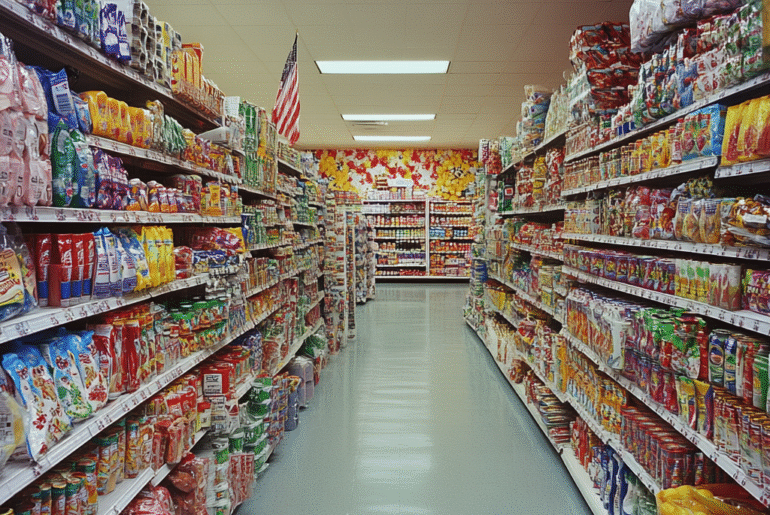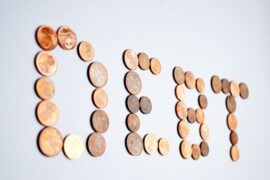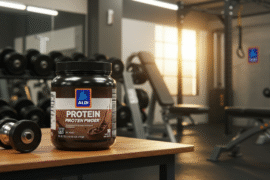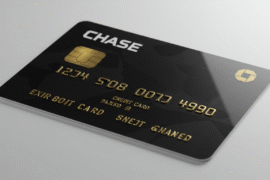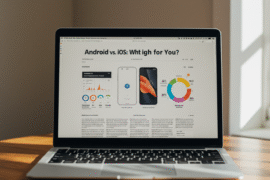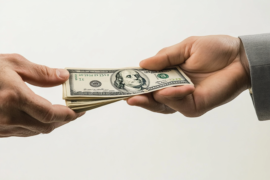This article may contain references to products or services from one or more of our advertisers or partners. We may receive compensation when you click on links to those products or services. Nonetheless, our opinions are our own.
The information presented in this article is accurate to the best of our knowledge at the time of publication. However, information is subject to change, and no guarantees are made about the continued accuracy or completeness of this content after its publication date.
When you walk through the aisles of your local warehouse club or look for bulk items online, the idea of saving money can be very appealing. Buying in bulk often seems like a good idea because who doesn’t like the idea of getting more for less? But before you start filling up your cart, you should stop and think about a few things: Are you really saving money, or are you accidentally adding to the problem? When does this buying strategy go from being a smart investment to a possible waste? We’ll look at the details of buying in bulk so you can tell when it’s a good idea and when it might lead to spending more than you need to. You can make better choices that fit your budget and lifestyle by knowing what these purchases mean.
- True Costs of Bulk Buying
- Recognizing Your Actual Consumption Rates
- Weighing Storage and Handling Challenges
- Identifying Deals vs. Marketing Tactics
- Calculating the Long-Term Value of Bulk Purchases
- Making Informed Choices for Your Budget and Needs
- Conclusion
-
Frequently Asked Questions
- What does it mean to buy in bulk?
- Why do people choose to buy in bulk?
- When does buying in bulk become unwise?
- How can I determine if bulk buying is right for me?
- What are signs that bulk buying isn’t a good idea?
- Are there alternatives to bulk buying?
- What are some items that are usually good to buy in bulk?
- Recommended Reads
True Costs of Bulk Buying
When considering bulk buying, it’s important to look beyond the initial price tag and learn the full scope of costs involved. While purchasing in larger quantities often comes with enticing discounts, you might find that the savings don’t always translate to long-term benefits.
Here are a few factors to keep in mind:
- Storage Space: Do you have adequate space to store large quantities? If you have to rent storage or your home becomes cluttered, those costs can quickly outweigh the savings.
- Expiration Dates: Items like food and personal care products have shelf lives. Overspending on things you won’t use before they expire can lead to waste and lost money.
- Cash Flow Management: Allocating a significant amount of cash upfront for bulk purchases might hinder your liquidity for unexpected expenses or opportunities.
Bulk Buying vs. Regular Purchasing
| Item | Bulk Price | Single Price | Quantity Saved |
|---|---|---|---|
| Dish Soap (2L) | $9.00 | $5.00 | 1 |
| Toilet Paper (36 Rolls) | $24.00 | $18.00 | 0 |
| Plant-Based Protein (5lbs) | $30.00 | $10.00 | 1 |
While bulk prices might initially seem cheaper, analyzing the quantity you actually save and your likelihood of using these items before they expire is important. The long-term implications of bulk purchases often determine whether they are truly wise spending choices.
Recognizing Your Actual Consumption Rates
Knowing your actual consumption rates is critical when determining whether buying in bulk is a smart financial choice. To make informed decisions, track your usage of items over time. This will help you identify which products you genuinely need in larger quantities and which ones are merely taking up space. Consider keeping a simple record of your monthly consumption. You might find it helpful to categorize items as follows:
- Essentials: Used daily, such as toiletries or kitchen staples.
- Occasional: Used sporadically, such as seasonal snacks.
- Impulse Purchases: Bought on a whim and often expire before use.
Monthly Usage and Cost Comparison
| Item | Avg. Monthly Usage | Bulk Purchase Size | Cost Comparison |
|---|---|---|---|
| Rice (lbs) | 10 | 50 | Bulk: $30 |
| Toothpaste (tubes) | 2 | 12 | Bulk: $15 |
| Snack Bars (packs) | 3 | 24 | Bulk: $50 |
Analyzing your consumption data helps you determine whether bulk purchases are genuinely cost-effective or if they lead to waste. Buy only what you’ll realistically use to ensure your spending aligns with your financial goals.
Weighing Storage and Handling Challenges
Buying in bulk may seem savvy, but don’t underestimate the challenges that come with storing and handling large quantities. Ask yourself: is that jumbo box of cereal worth the hassle?
Here are considerations:
- Storage Space: Do you have enough room in your kitchen, pantry, or garage? A great deal can become a waste of money if expired goods are discarded.
- Accessibility: Items stored in hard-to-reach places are more likely to be forgotten until it’s too late.
- Proper Handling: Some items require specific storage conditions to remain fresh. Are you equipped to manage those?
Common Pitfalls of Bulk Items
| Bulk Purchase | Potential Pitfalls |
|---|---|
| Non-perishables | Take up space, though there is less risk of spoilage |
| Fresh produce | Short shelf life, risk of spoilage |
| Household supplies | May clutter your home and become hard to manage |
Evaluating these logistical concerns can help you decide whether bulk buying aligns with your available space and lifestyle.
Voted "Best Overall Budgeting App" by Forbes and WSJ
Monarch Money helps you budget, track spending, set goals, and plan your financial future—all in one app.
Get 50% OFF your first year with code MONARCHVIP
Identifying Deals vs. Marketing Tactics
Spotting genuine bargains versus falling for marketing hype is important. Bulk items are often advertised as major deals, but a closer look might reveal otherwise.
Watch Out For:
- Unit Price Analysis: Always calculate the cost per unit. Sometimes the larger package doesn’t offer significant savings.
- Expiration Dates: Perishables can become waste if not consumed in time.
- Marketing Hype: Words like “limited-time offer” can create false urgency.
Bulk vs. Retail Pricing
| Item | Price per Unit (Bulk) | Price per Unit (Retail) |
|---|---|---|
| Dish Soap | $0.50 | $0.75 |
| Pasta | $0.30 | $0.25 |
| Cereal | $3.00 | $2.50 |
Checking the price per unit helps you make a smart choice instead of just going along with what the salespeople say.
Calculating the Long-Term Value of Bulk Purchases
Beyond the sticker price, assess the long-term value of bulk purchases to avoid hidden costs.
- Storage Costs: Consider whether limited space or added storage expenses cancel out any discounts.
- Expiration Dates: Perishable items can become liabilities if unused.
- Market Fluctuations: Prices go up and down, so what seems like a good deal today might not be tomorrow.
Long-Term Savings Example
| Item | Single Price | Bulk Price (per unit) | Total Savings |
|---|---|---|---|
| Cereal (2 lb) | $5.00 | $4.00 (5 lb) | 20% |
| Dish Soap (16 oz) | $3.00 | $8.00 (64 oz) | – |
Not only your wallet but also your lifestyle and storage plan should make you ask yourself if the purchase fits.
Making Informed Choices for Your Budget and Needs
Buying in bulk can be a good idea, but only if it fits your real needs. Even though the price per unit may be lower, you should think about these things before making your choice:
- Storage Space: Lack of space can lead to wasted money on spoiled or forgotten items.
- Expiration Dates: Perishables need to be consumed before spoiling.
- Usage Rate: Buying more than you can realistically use results in overspending, not saving.
Example Comparison
| Item | Single Cost | Bulk Cost | Quantity in Bulk |
|---|---|---|---|
| Granola Bars | $0.75 each | $0.50 each | 30 bars |
| Toilet Paper | $0.50 each | $0.40 each | 48 rolls |
If quantities exceed your consumption, even good per-unit pricing may result in waste.
Conclusion
Buying in bulk can be a good way to make your money go further, but only if you do it with a plan. It’s not just the price on the tag; it’s also how your spending habits, storage space, and ability to pay for things fit with the purchase. Some things can help you save a lot of money, but others can slowly use up your resources without you even realizing it. You can make better financial choices by figuring out what you really need, how much something will be worth in the long run, and how to spot marketing tricks.
Frequently Asked Questions
What does it mean to buy in bulk?
Buying in bulk means purchasing large quantities of a product at once, typically at a lower cost per unit.
Why do people choose to buy in bulk?
People buy in bulk to save money, reduce shopping trips, and stock up on essentials. Larger purchases often provide cost efficiencies.
When does buying in bulk become unwise?
It becomes unwise when the savings are minimal, items are perishable, or you lack space or budget for large purchases.
How can I determine if bulk buying is right for me?
Evaluate your usage habits, compare unit prices, and consider whether you have adequate storage space. Only buy what you can realistically use.
What are signs that bulk buying isn’t a good idea?
Signs include impulse purchases, lack of storage, and buying items that expire before use or strain your budget.
Are there alternatives to bulk buying?
Yes. You can join co-ops or bulk-buying clubs, split purchases with others, or shop more frequently in smaller quantities.
What are some items that are usually good to buy in bulk?
Items like canned goods, rice, pasta, toiletries, and cleaning supplies are generally safe bulk buys due to long shelf lives and regular usage.

Reviewed and edited by Albert Fang.
See a typo or want to suggest an edit/revision to the content? Use the contact us form to provide feedback.
At FangWallet, we value editorial integrity and open collaboration in curating quality content for readers to enjoy. Much appreciated for the assist.
Did you like our article and find it insightful? We encourage sharing the article link with family and friends to benefit as well - better yet, sharing on social media. Thank you for the support! 🍉
Article Title: At What Point Does Buying in Bulk Stop Being a Wise Spending Choice?
https://fangwallet.com/2025/08/07/at-what-point-does-buying-in-bulk-stop-being-a-wise-spending-choice/The FangWallet Promise
FangWallet is an editorially independent resource - founded on breaking down challenging financial concepts for anyone to understand since 2014. While we adhere to editorial integrity, note that this post may contain references to products from our partners.
The FangWallet promise is always to have your best interest in mind and be transparent and honest about the financial picture.
Become an Insider

Subscribe to get a free daily budget planner printable to help get your money on track!
Make passive money the right way. No spam.
Editorial Disclaimer: The editorial content on this page is not provided by any of the companies mentioned. The opinions expressed here are the author's alone.
The content of this website is for informational purposes only and does not represent investment advice, or an offer or solicitation to buy or sell any security, investment, or product. Investors are encouraged to do their own due diligence, and, if necessary, consult professional advising before making any investment decisions. Investing involves a high degree of risk, and financial losses may occur including the potential loss of principal.
Source Citation References:
+ Inspo
Griffith, R., Leibtag, E., Leicester, A., & Nevo, A. (2009). Consumer shopping behavior: how much do consumers save?. Journal of Economic Perspectives, 23(2), 99-120.
